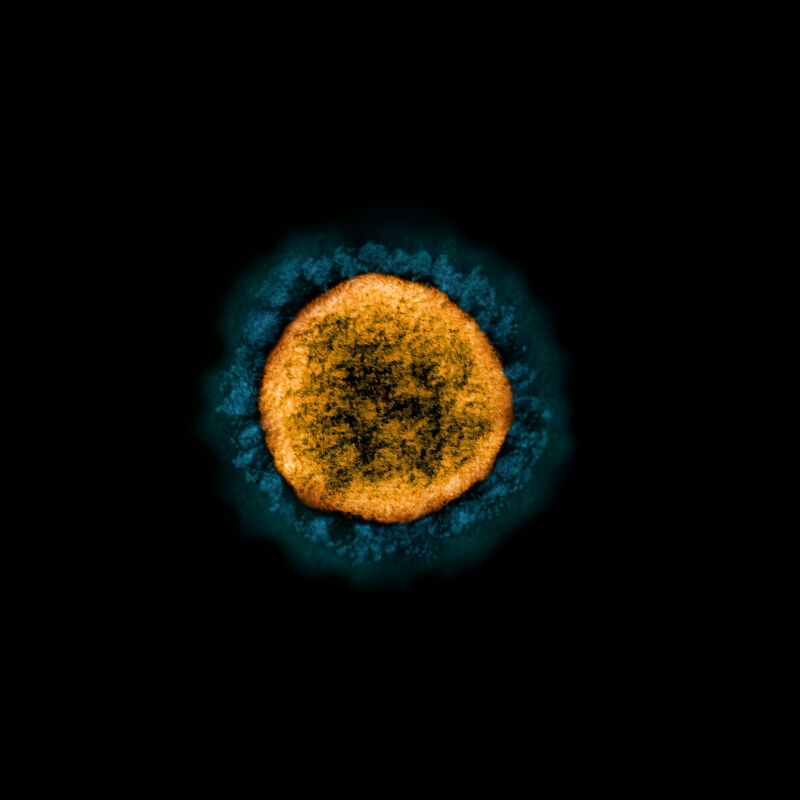Delta-omicron recombinant virus no reason for panic, health experts say

Enlarge / Transmission electron micrograph of a SARS-CoV-2 virus particle isolated from a patient sample and cultivated in cell culture. (credit: Getty | BSIP)
Researchers in France have reported the first compelling genetic evidence of a recombinant SARS-CoV-2 virus that contains elements of both the omicron coronavirus variant and the delta variant. However, health experts at the World Health Organization and elsewhere have been quick to note that such a recombinant virus is expected to arise and, so far, there's no reason to be worried about the hybrid.
The delta-omicron recombinant-a combination of the delta AY.4 subvariant's backbone and the omicron BA.1 subvariant's spike protein-has been circulating at very low levels since at least early January 2022 in France. Researchers have also reported a smattering of cases in Denmark, Germany, and the Netherlands. So far, epidemiology data on the recombinant's spread does not raise any red flags, and the variant does not appear to cause more severe disease, according to WHO technical lead Maria Van Kerkhove, who addressed the variant in a press briefing this week. However, researchers are in the process of conducting more studies on the recombinant and will be monitoring it closely, as the organization does with other new variants, she noted.
Coronaviruses are known to recombine, and researchers fully expected that such recombinant SARS-CoV-2 viruses would crop up from time to time. Generally, recombination can happen when two variants infect one person at the same time and invade the same cells. In this scenario, the cellular machinery that viruses hijack to make clones of themselves can sometimes abruptly switch from translating the genetic code of one of the variants to the code of the other, resulting in a mosaic virus.
Read 4 remaining paragraphs | Comments